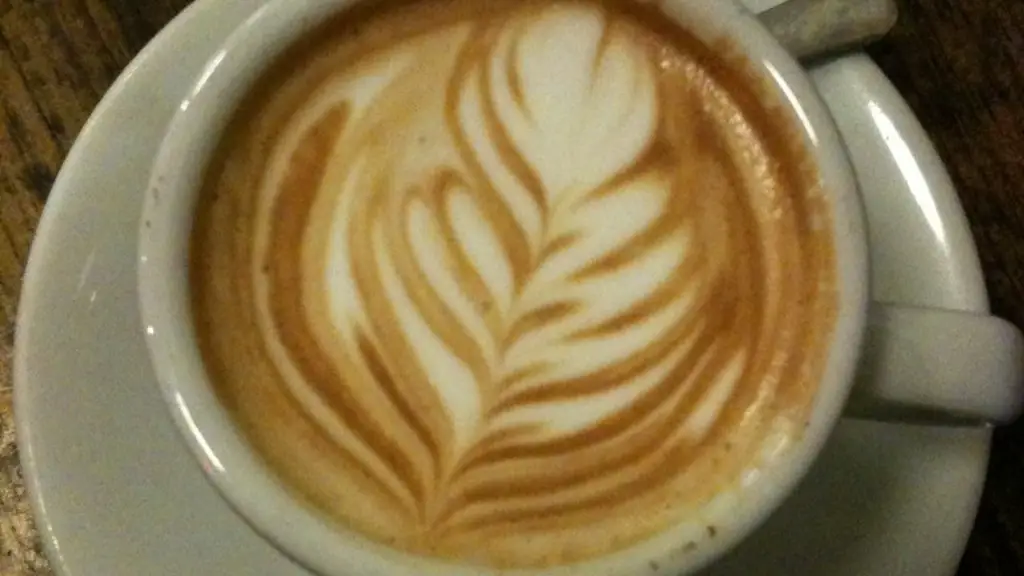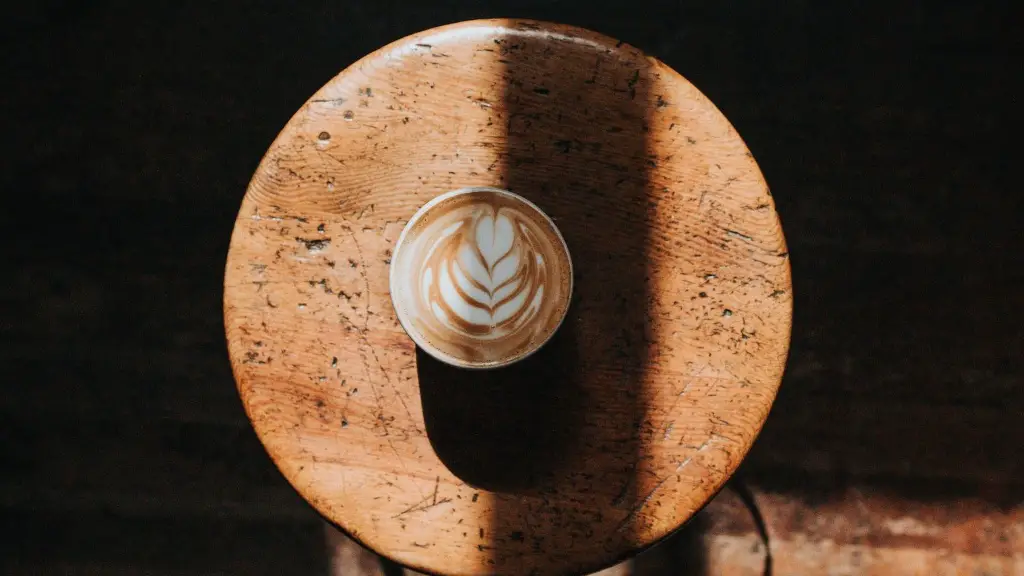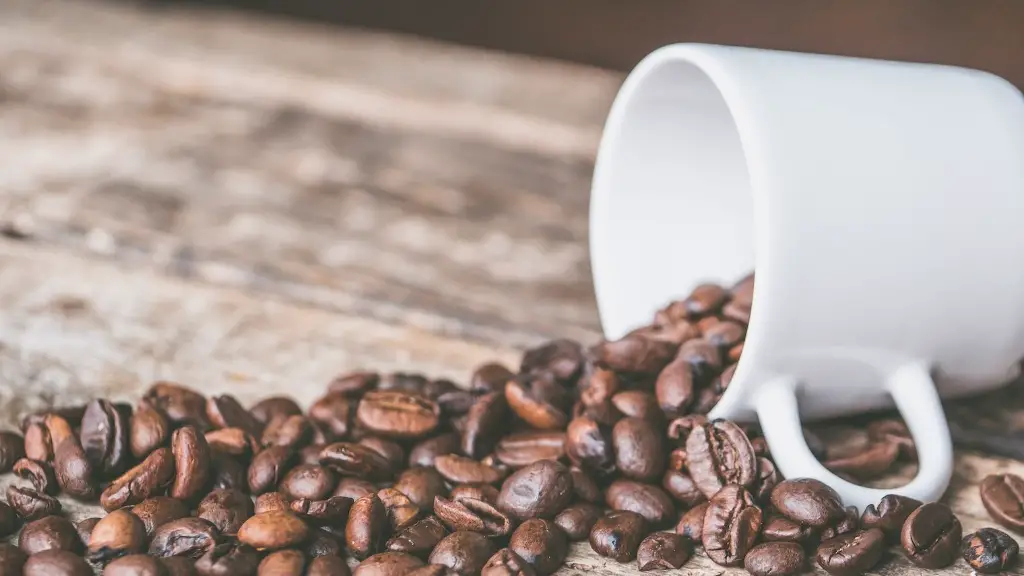Coffee is known to have a lot of health benefits and is usually consumed by many people on a daily basis. However, after suffering from a heart attack, it is important to know whether it is safe to drink coffee or not.
In general, drinking coffee after a heart attack can be safe as long as you are following the right guidelines. It is important to note that the amount and type of coffee you consume may affect its safety for your body. For example, caffeinated coffee can cause the heart rate and blood pressure to increase, which can be dangerous for those who have had a heart attack. Therefore, it is important to consult your doctor before drinking coffee after a heart attack.
Your doctor will be able to provide you with advice on what type and amount of coffee is safe for you to drink after a heart attack. They will also provide guidance on how often you should drink coffee and what other lifestyle changes you should make in order to reduce your risk of another heart attack in the future.
Risks of Drinking Coffee After a Heart Attack
Drinking coffee after a heart attack may increase the risk of developing arrhythmias, or irregular heartbeats. This is because caffeine can increase your blood pressure and heart rate, which can put additional strain on your heart. It can also cause vasoconstriction, which is when the small arteries and veins narrow, reducing blood flow to the heart. Moreover, it can worsen symptoms of anxiety and other mental health conditions. For these reasons, it is important to consult with your doctor before consuming coffee after a heart attack. Your doctor will be able to advise you about which types of coffee are safe for you and how much you should drink. They may also recommend lifestyle changes such as quitting smoking or exercising more often to reduce your risk of having another heart attack.
Alternatives to Coffee After a Heart Attack
If you have had a heart attack, it is important to be mindful of what you drink. Coffee contains caffeine, which can raise blood pressure, potentially causing further damage to the heart. While some studies suggest that moderate consumption of coffee may be beneficial for cardiac health, it is best to err on the side of caution and consider alternative beverages. Herbal teas such as chamomile or ginger can provide many of the same warm and soothing benefits as coffee without the added caffeine. Fruit-flavored teas can also be a refreshing alternative. If you are looking for something with more flavor and body, try decaffeinated tea or coffee. There are also several health-promoting drinks such as green tea and hibiscus tea that may help reduce inflammation and improve your overall wellbeing. Finally, if you need an extra boost in the morning, natural energy drinks containing ingredients such as guarana and yerba mate can provide an energizing pick-me-up without the adverse effects of regular coffee.
Ultimately, it is important to talk to your doctor about what types of beverages are safe for you after a heart attack so that you can make an informed decision about your health.
Safety Tips for Drinking Coffee After a Heart Attack
Drinking coffee after a heart attack may be possible, but it is important to be aware of the risks. Caffeine can cause an increase in heart rate and blood pressure, both of which can be dangerous for someone who has had a heart attack. It is also important to note that coffee may interact with certain medications, so it is best to speak to your doctor before consuming any caffeinated beverages.
When consuming coffee after a heart attack, it is best to start slow and gradually increase your intake. It is recommended to drink no more than two cups of coffee per day and avoid adding sugar or cream. Drink decaffeinated coffee if possible or look for naturally caffeinated options like green tea or matcha tea. Additionally, avoid drinking coffee on an empty stomach as it can cause further strain on the heart.
Overall, it is important to talk to your healthcare provider before drinking any type of caffeinated beverage after suffering from a heart attack. They will be able to provide personalized advice based on your current health status and medications you are taking.
Recommended Amounts of Coffee After a Heart Attack
It is possible to drink coffee after a heart attack, but in moderation. Caffeine can increase heart rate, blood pressure, and stress levels, so it is important to consume coffee with caution. Many doctors recommend limiting your caffeine intake to one or two cups of coffee per day. It is best to avoid caffeinated beverages such as energy drinks and soda if you have had a heart attack. Additionally, be aware of other sources of caffeine such as chocolate and certain medications.
It is important to talk with your doctor about drinking coffee after a heart attack. They can help you determine the best amount for you based on your medical history and current health status. Some people may need to avoid coffee altogether, while others may be able to drink it in moderation. Your doctor can help you determine what is best for you and any potential risks associated with drinking coffee after a heart attack.
If you decide to drink coffee after a heart attack, make sure that it is low-acid and decaffeinated varieties whenever possible. This will reduce the risk of irritation or aggravation of any existing health conditions such as acid reflux or gastritis. Also, try adding milk or cream instead of sugar as this can help reduce the acidity levels in coffee. Drinking responsibly after a heart attack is essential for maintaining good health.
The Role of Caffeine in Cardiovascular Health
Caffeine is a commonly consumed stimulant found in tea, coffee, and other beverages. It is known to have both positive and negative effects on cardiovascular health. A major concern for people with cardiovascular disease is the potential for caffeine to increase the risk of heart attack or stroke. The research on this topic is mixed, with some studies suggesting that moderate consumption of caffeine can actually be beneficial for people with heart conditions. However, it’s important to discuss any potential risks with your doctor before increasing your caffeine intake.
Caffeine has been linked to increased blood pressure, which can be especially risky for people with pre-existing heart conditions. Studies have also suggested that excessive consumption of caffeine may increase cholesterol levels and put strain on the cardiovascular system. On the other hand, moderate consumption of caffeine has been found to improve blood flow and reduce inflammation in the body, which can help protect against heart disease. Additionally, some research suggests that drinking coffee may reduce your risk of developing type 2 diabetes.
Given these conflicting findings, it is important to talk to your doctor about whether or not it is safe for you to drink coffee after a heart attack. Your doctor will consider your individual medical history and current health status when making their recommendation. In general, moderate amounts of caffeine are thought to be safe for most people with heart conditions; however, it’s always best to check with your healthcare provider before making any changes to your diet or lifestyle.
Choosing the Right Type of Coffee After a Heart Attack
For those who have had a heart attack, making changes to diet and lifestyle is essential for long-term health. Drinking coffee can be part of these changes, as long as it is done in moderation and with the right type of coffee. Caffeinated coffee should be limited to no more than two cups per day for someone who has had a heart attack. Unfiltered coffee, such as French press or espresso, should be avoided altogether. Instant and decaffeinated coffees are usually safe choices and can provide the same flavor without the added risk of caffeine.
In addition to choosing the right type of coffee, it is important to consider what additives are used in it. Adding creamers or sugar can add calories but do not offer any nutritional value. Instead, opt for healthier alternatives such as skim milk or natural sweeteners like honey or agave nectar. It is also wise to avoid flavored coffees that may contain added chemicals and saturated fats.
Finally, it is important to pay attention to how the body responds after drinking coffee. If symptoms such as an increased heart rate or nervousness occur, consider reducing the amount consumed or switching to decaffeinated varieties instead. By making healthy choices when it comes to drinking coffee after a heart attack, individuals can ensure their long-term health and well-being.
Final Words
In conclusion, drinking coffee after a heart attack can be beneficial or risky depending on the individual. It is important to consult with a doctor first to ensure that it is safe and suitable for you. Additionally, it is also wise to closely monitor your body’s reactions as well as keeping track of your caffeine intake. By doing so, you can make sure that your coffee consumption is not putting your health at risk.




